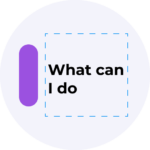Innovative Voice Platform Makes Conversations Flow
Deepen Your Connections
Conversational voice adds dimension and richness to the customer experience. It’s also far more productive than text-only chatbots and IVRs. We owe much of this progress to recent advances in ASR, NLU, dialog managers, TTS and basic language modeling.
Impediments to Progress
Unfortunately, there are still big challenges with natural language generation. Today’s NLU often fails to understand context and nuance of human speech. In turn, most voices behave robotically, flat system responses are hardcoded, which means use cases are limited to “step and fetch” tasks.
Heavy Lifting & High Costs
The implementation process requires repeating heavy programming and never-ending maintenance. This results in delays and higher costs, leaving companies with questionable ROIs.
Wellspoken: a Paradigm Shift
Wellspoken resolves complex dialog management, NLG and development challenges—true breakthroughs in self-service voice conversations. Our patent-pending artificial intelligence modules, the Wellspoken Situation Conversation Manager (SCM) and Situation Response Generator (SRG), are built on human behavior neural models to interpret and respond to the context and nuance of speech, even gradual changes of tone.
Elevating Customer Satisfaction
We enable conversational voice app designers and developers to craft, simulate and publish true bi-directional conversations. Users can speak naturally, and the voice app. will understand behavioral situations and respond intelligently, conversing like humans do.
Getting Started
Currently the Wellspoken voice platform is available as an easy-to-use rich SDK. Coming soon, we will also offer Wellspoken as an E2E voice application design and deployment platform.
A Complete Voice Platform
The Wellspoken Platform (in bright blue) combines robust design and development tools with our SCM and SRG AI modules—so you can create, deploy and maintain more intelligent, responsive voice apps.
By integrating Wellspoken with your preferred NLU and dialog manager, you and your customers benefit from more natural, effective conversations.
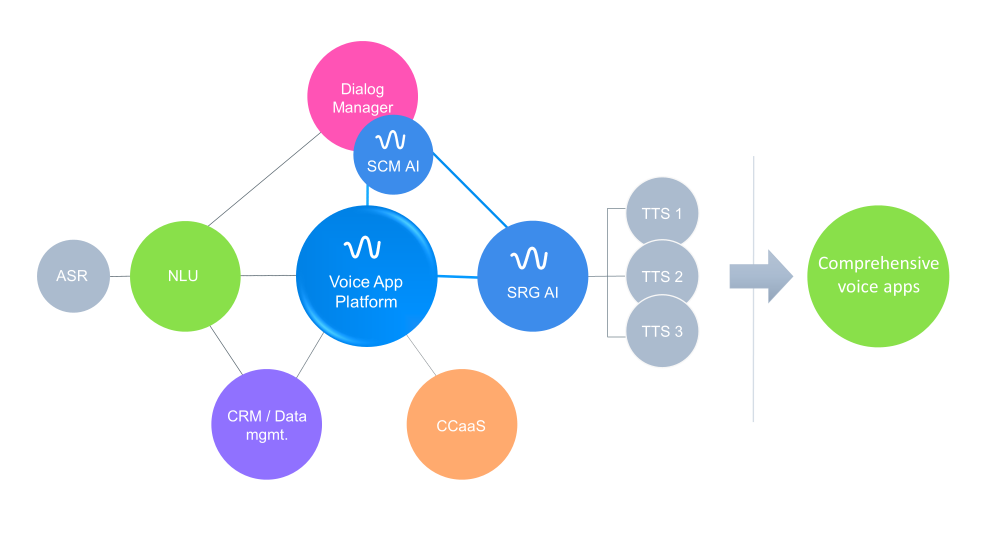
Quick Development Cycle
With a complete set of development tools, voice app developers can quickly and effectively implement voice applications for popular voice-first interfaces and devices. Your business guidelines and conversations samples, combined with behavioral situation libraries from WellSpoken and our development community, speed the development process. This gives you more time to focus on the uniqueness of each use case and the intended experience.
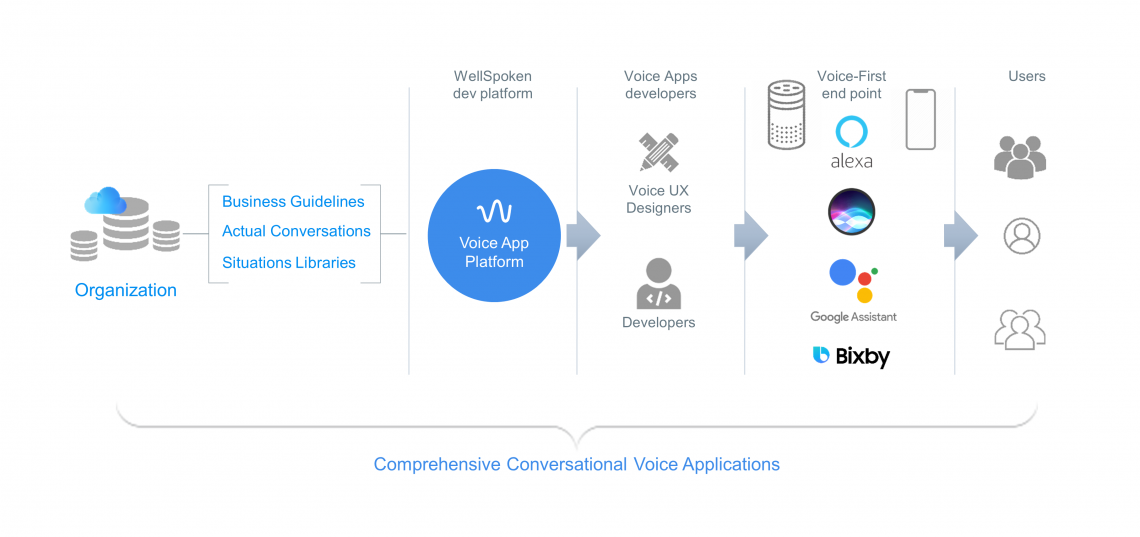
Taking Design by Situations to the Next Level
Designing voice applications by situations is more intuitive than waterfall scripted design and, in theory, produces more natural conversations. But it also presents new challenges.
To overcome these issues, Wellspoken is designed to:
- Shift the main effort from programming to design
- Resolve situation conflicts and misunderstandings
- Ensure consistent behavior across voice applications
Reinventing Voice App Creation
We’ve changed the development paradigm—from large, rigid programming-oriented teams to an agile team model focused on design and simulate by situations.
Optimizing Outcomes
We’ve changed the development paradigm—from large, rigid programming-oriented teams to an agile team model, focused on design and simulate by situations.
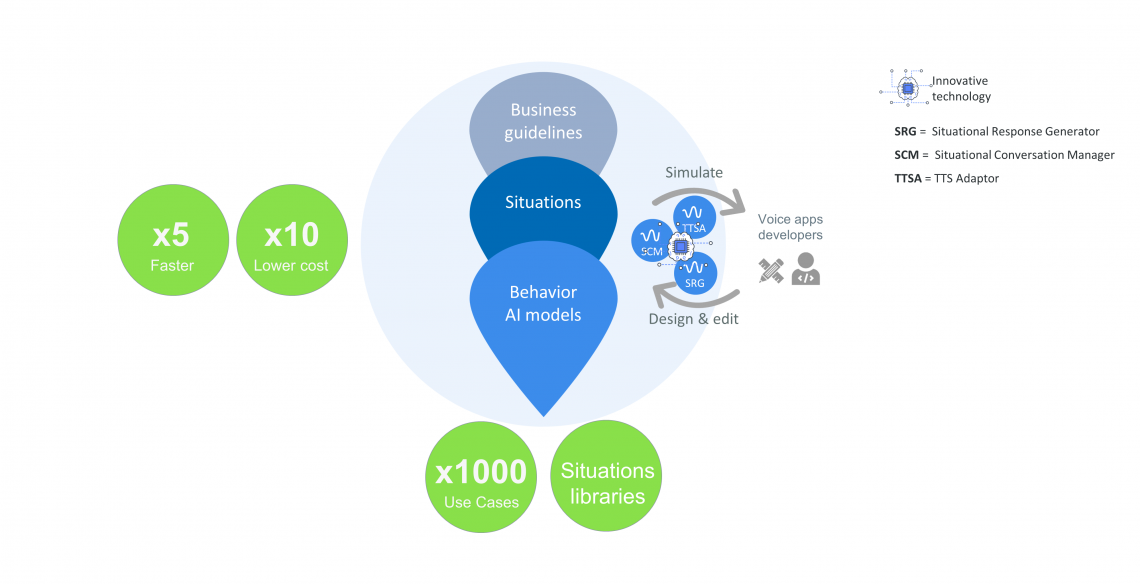
Consistent and Flexible
We manage complete voice journeys so that all conversational and behavioral aspects are consistent. We also allow unscripted dialog flows, side topic discussions, context switches, and more.
Ground Breaking Innovation
Our platform is based on three proprietary AI components that share voice situations and conversational training datasets. The SCM module expands on the best conversational capabilities of leading NLUs and dialog managers. The SRG takes NLG to new heights—with contextual intelligence and responsiveness never achieved until now, and the TTS adaptors ensure consistent voice behavior without any specific programming.
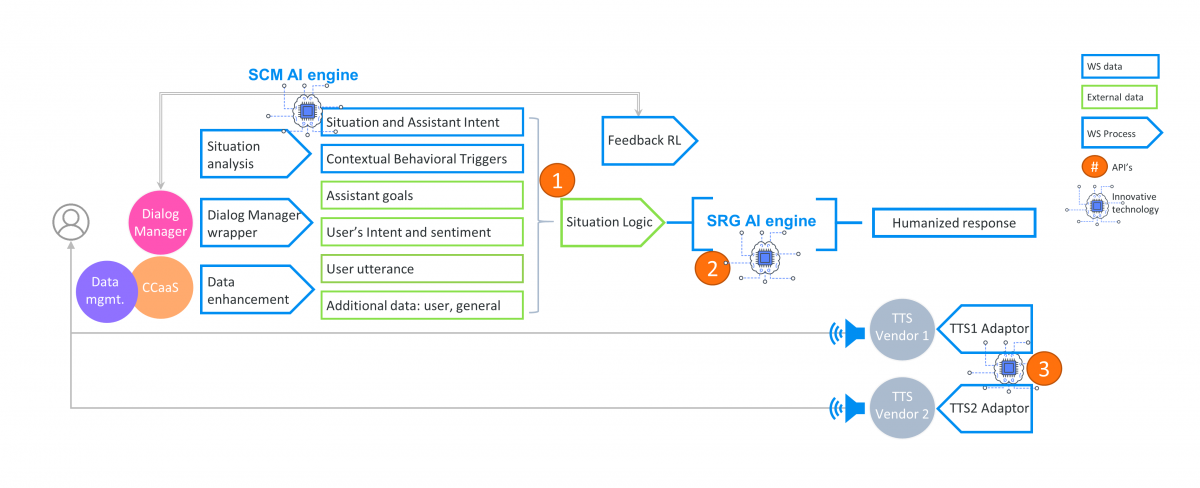
Our SDK
APIs

Situational Conversation Manager API: allows transparent access to multiple dialog managers and to predefined situations, and behavioral libraries.

Situational Response Generator API: enables NLG and multiple possible dynamic response templates, regardless of the TTS vendors and voices in use.

Text-to-Speech API: unifies TTS calls and optimizes TTS performance transparently across vendors. It may be fed directly with SRG output or separately with user-created text or SSML.

Examples of predefined conversational behaviors
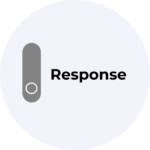
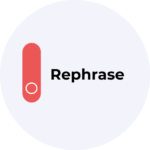






Examples of predefined situations





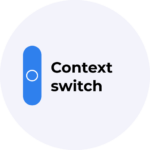




Examples of pre-modeled contextual behavior triggers


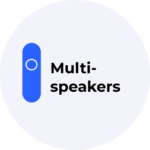

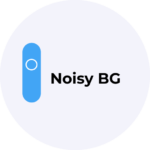

Botic situations library


